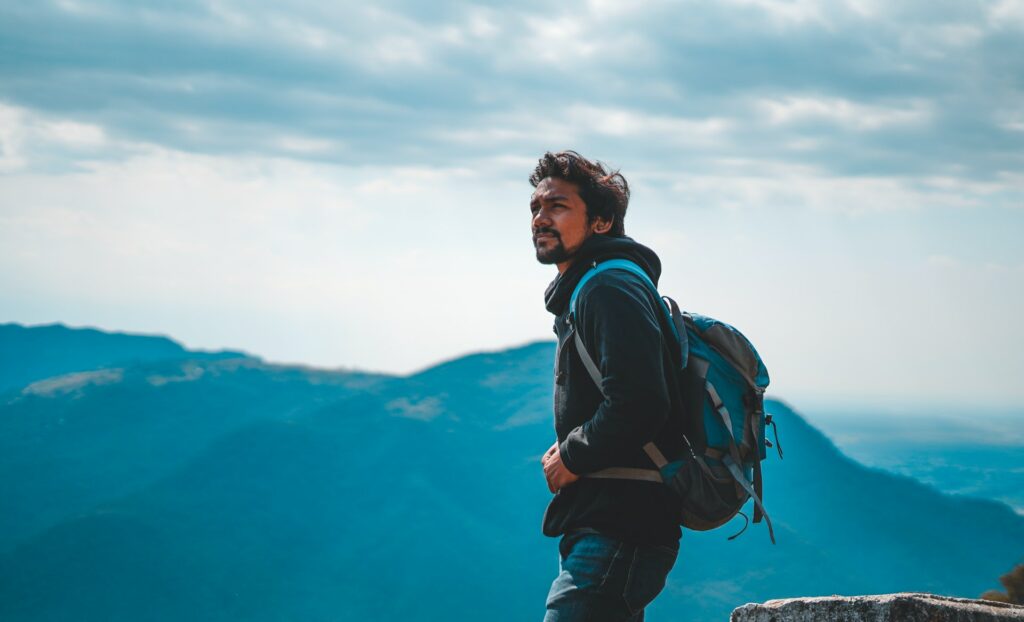Recovering From the Worst Economic Slump: Digital Turnaround in Tourism

By Sandeep Dwivedi, COO, InterGlobe Technology Quotient
In the first two decades of 2020, we witnessed two of the worst economic recessions—one caused by deregulation in financial industry and the other, by a global pandemic. Needless to say the impacts of both these crisis are severe in all ways, especially economically and psychologically. Talking about COVID-19 in particular; last year, it has proven to be an accelerator of downturns, more so for industries that promote and rely on direct human contact. Travel and tourism was one of these. In the Indian market, an estimated 10 to 15 lakh crore rupees is wiped out in the last three quarters, and a further estimated decrease of around 80% of international travel globally in 2020 was witnessed.
Let’s take a moment to recall where we stood a year ago, right at this time. We were entering a national lockdown which was completely unimagined and unexpected by almost everyone. Travel came to an abrupt halt. Suddenly, all airline fleets were grounded and a new concept of travel bubbles emerged. While we tried to reunite stranded nationals with their families through the flights that were operational, a whole set of unimagined problems presented themselves. What was the new schedule of flights? How many people were allowed on one flight? What were the requirements to take such a flight? Then there were people whose travel plans were put off. How will they get their money refunded from cancelled flights? What about their packages, including hotel and car, and their refunds? Naturally with travel halted, airlines faced a major cash crunch to refund all the immediate cancellations. Many were seen filing for bankruptcy. The future naturally seemed bleak.
We were in a desperate need of solutions, and camaraderie and mindfulness appeared the best way to find those solutions. As a B2B business, we placed partner experience first and redefined a structure that would help them process these unprecedented changes smoothly. We created linear entries for refunds, offered trainings, built remote setups, and developed digital forums among other things. I present this example to stress upon the idea of staying mindful while looking at a problem and finding right solutions, in this case with technology and digital transformation.
To look at the impact of COVID on consumer behaviour with regards to travel, a recent survey by Deloitte revealed that 1 in 2 travelers fear to have to self-isolate on a holiday, 2 in 5 travelers are concerned about flying, 68% would choose not to fly until long-haul vaccine is available, 53% want a guaranteed refund, and 2 in 5 would likely avoid a busy destination. On the positive side, 2 in 5 will choose to spend more on a holiday in 2021, and 1 in every 2 holidaymakers would choose to book all-inclusive packages.
You see, COVID-19, to date, remains a multifaceted and multi-dimensional challenge. It is a complex one with economic downturn as a part of it and altered consumer behaviour as a side effect. We see signs of recovery but with a differentiated outlook. The developments are no longer in pace with what we assumed and expected in relation to 2019. The expectations are completely different now and may I say, differently opinionated. Traditionalists view this still in a comparison format awaiting recovery in lines with the past. Opportunists view this in an entirely different light and see how innovations and transformations can be introduced to make a new path for travel and tourism.
I’ll discuss the latter here with you, considering the promising stance it presents. Not to forget the forward-looking, futuristic outlook. For this reinstated grounds we stand on today, and the near-term challenges we face, we require a focused, utility based approach where innovation and better application of new technologies are responsibly created and put to use.
The COVID-19 impact needs to be properly analysed not just on business but on customers, employees and communities at large. If we are to bring a digital turnaround in tourism, we need to first focus on these three as they will be the evolved stakeholders impacted by all such innovations.
To give you an example, consider how a digital travel pass would impact those with little knowledge of smartphones. In addition, consider how removing paper from this consumer touchpoint, courtesy digital pass, will impact the environment and larger communities who are rooting for a sustainable development and rightly so.
As a solution for the first, we can have representatives acting as guides to help travellers access digital pass. As an inspiration for the second, we can set an example for responsible developments in tourism.
So what awaits us in the near future, while we fight the ongoing pandemic with vaccinations, protocols, and regulated travel and out-of-home activities? We have already received the first range of progressive digital developments that will redefine travel and tourism in the post pandemic world.
 Starting with biometric gates at boarding areas, we see the trend is already picking pace and these will become a common sight sooner than anticipated. Then we have two key developments available in the market already, or may I say screens, although in a limited manner.
Starting with biometric gates at boarding areas, we see the trend is already picking pace and these will become a common sight sooner than anticipated. Then we have two key developments available in the market already, or may I say screens, although in a limited manner.
First is the embedded tracker of government and national policies related to travel, including nation and city-wise travel regulations. Currently travel agents both big and small are able to access these within the software. This in turn is easing the process of booking tremendously while enabling relay of digitally available, up-to-date information to the travellers.
Second is the digital, app-based push notifications where travellers receive instant updates on modifications in travel regulations, safety report on their destination of travel, and other important details. We are expecting an upgrade in these two digital developments that will be smarter and more intelligent than current versions.
Now, let me point at an interesting digital development that we should be looking forward to in the future – the predictive artificial intelligence. Once in place, it will help us offer our customers apt choices based on their individual tastes. Right from the destination they would enjoy travelling to the sites they would love visiting to the hotels they would enjoy staying in. It is like customizing a platter they didn’t yet know they will relish. And that is incredible. Best part is, travel agents will not have to research at all. With a quick input of required information the machine will be able to provide predictive insights with almost accurate options as a result.
With the world turning digital, and India expecting 820 million smartphone users in 2022, these digital developments will empower businesses in tourism with more accuracy, insights and speed in transacting, making future of travel much more than recovery. Such a digital turnaround, at a swifter pace, courtesy the ongoing pandemic, will be an excellent development for travel and tourism industry in the near future.







Responses